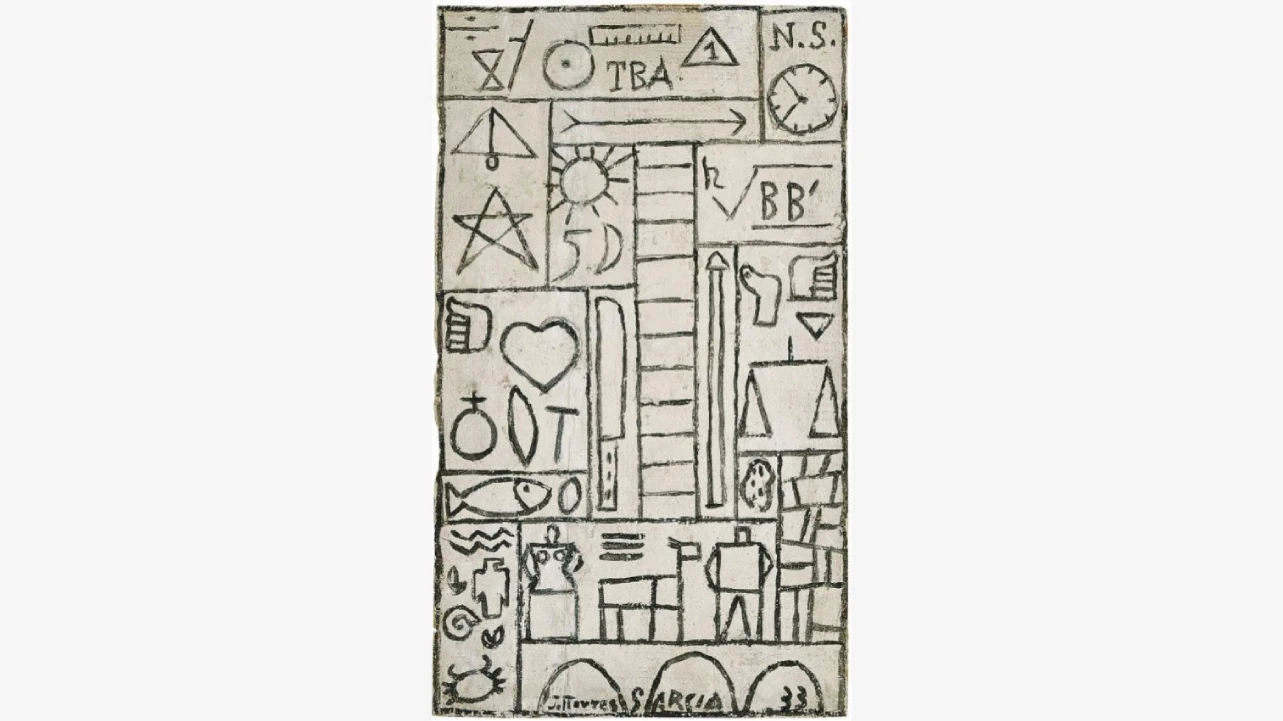
Joaquín Torres García, Constructivo en blanco y negro “TBA” (Black and White Constructive, “TBA”), 1933
© Sucesión Joaquín Torres García, Montevideo, 2015
Held on 08 nov 2024
This year marks the 150th anniversary of the birth of Joaquín Torres García (Montevideo, 1874–1949), one of the foremost artists in a rereading of modernity from the South. To commemorate this landmark year, the Museo Reina Sofía and the Embassy of Uruguay organise a round-table discussion centred on his career and relevance, featuring the participation of art historians Juan Manuel Bonet and Andrea Giunta, Alejandro Díaz Lageard, director of the Museo Torres García, and the artist Ana Tiscornia. It also includes a presentation by Ana Teresa Ayala, a Uruguayan ambassador to Spain, and Manuel Segade, the director of the Museo Reina Sofía.
Torres García, whose work is part of the Museo Reina Sofía Collection, is the founder of an art movement called Constructive Universalism, comprising Indigenous and popular roots within the structure of constructivist language. Through this current, the artist put forward a synthesis between the rational and the spiritual, the contemporary and the ancestral, and between North and South, offering a mode of seeing, understanding and representing modernity from Latin America. Furthermore, he was an artist-educator and the founder of art schools which would influence the cultural and artistic development of Uruguay and the region, for instance the Taller Torres García in Montevideo, a pedagogical endeavour combining craft and the avant-garde of Bauhaus and the Black Mountain College. On account of his adaptation of constructivist abstraction to a Latin American language and his educational work, Torres García today represents a contemporary paradigm of the internationalist artist from the South, the educator and someone with a profound awareness of his own identity.
During the round-table, Juan Manuel Bonet will explore Torres García’s relationship with Spain; Andrea Giunta will examine the artist’s relevance by fixing the gaze on a specific work; Alejandro Díaz Lageard will speak of the new edition of the Constructive Universalism manifesto and the currency of the proposal; and Ana Tiscornia will comment on the generational relationship she and a group of international Latin American artists from the 1970s have with Torres García. Attendants will be offered a drink upon the activity’s conclusion, courtesy of the Embassy of Uruguay.
Within the framework of
Joaquín Torres García 150 años
Organised by
Museo Reina Sofía y Embajada de la República Oriental del Uruguay
Participants
Ana Teresa Ayala has been a Uruguayan ambassador to Spain since October 2020, undertaking wide-ranging work to promote the bilateral relations between Uruguay and Spain and thus fostering agreements in education and international cooperation.
Juan Manuel Bonet is an art historian, writer and art and literary critic. He was the director of the Instituto Valenciano de Arte Moderno (IVAM) from 1995 to 2000 and director of the Museo Reina Sofía from 2000 to 2004, in addition to the director of the Instituto Cervantes in Paris from 2012 to 2018. He is currently the president of the Rafael Cansinos Assens Archive Foundation and the International Committee of the Vicente Huidobro Foundation. Moreover, he is the author of the reference work Diccionario de las vanguardias en España (1907-1936) and is a specialist in the history of early modernity in Spain, the subject of numerous exhibitions he has curated.
Alejandro Díaz Lageard is the director and curator of the Museo Torres García and a member of the foundation under the same name. He has organised over twenty exhibitions on the work of Joaquín Torres García in museums in Uruguay, Argentina, Brazil, Chile and Spain, and is the managing editor of the museum’s publications. He also jointly wrote the script to the feature-length film PAX IN LUCEM (2024), a documentary on the work of the artist.
Andrea Giunta is an art historian. A lecturer in modern and contemporary art (twentieth and twenty-first centuries) and art from Latin America and the Caribbean (from the nineteenth to the twenty-first century) at the University of Buenos Aires, she has published essays that most notably include Vanguardia, internacionalismo y política. Arte argentino de los sesenta (Siglo XXI, 2001), Escribir las imágenes. Ensayos sobre arte argentino y latinoamericano (Siglo XXI, 2011) and Feminismo y arte latinoamericano. Historias de artistas que emanciparon el cuerpo (Siglo XXI, 2018). Moreover, she has curated exhibitions such as Mercosur Biennial 12: Feminine(s): Visualities, Actions and Affections (2020) and, with Cecilia Fajardo-Hill, Radical Women: Latin American Art, 1960–1985, at the Hammer Museum, Brooklyn Museum and the Pinacoteca de São Paulo (2017–2019).
Manuel Segade is the director of the Museo Nacional Centro de Arte Reina Sofía.
Ana Tiscornia is an artist and lecturer. An emeritus professor at the State University of New York (SUNY), she is one of the most internationally renowned Uruguayan artists. She has received awards and honours such as the Konex Mercosur Award (2022), the New York Foundation for the Arts Fellowship (2004) and the Pollock-Krasner Foundation Grant (2000), and also represented Uruguay at the Second and Ninth Havana Biennials and the Third Biennial of Lima, as well as participating at the Fourth Biennial of the End of the World in Mar del Plata, Argentina. Her work has been exhibited in Latin America, the USA and Europe. She is the author of Vicissitudes of the Visual Imaginary: Between Utopia and Fragmented Identity (White Wine Press, 2007).
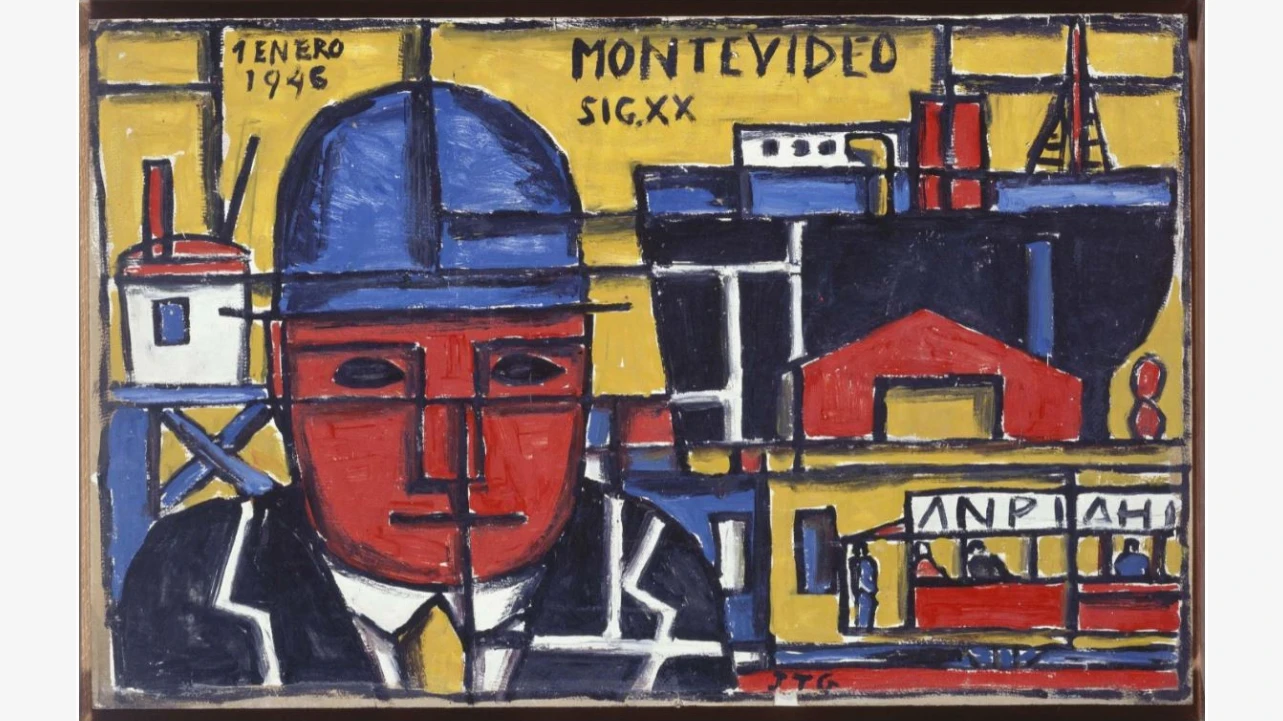
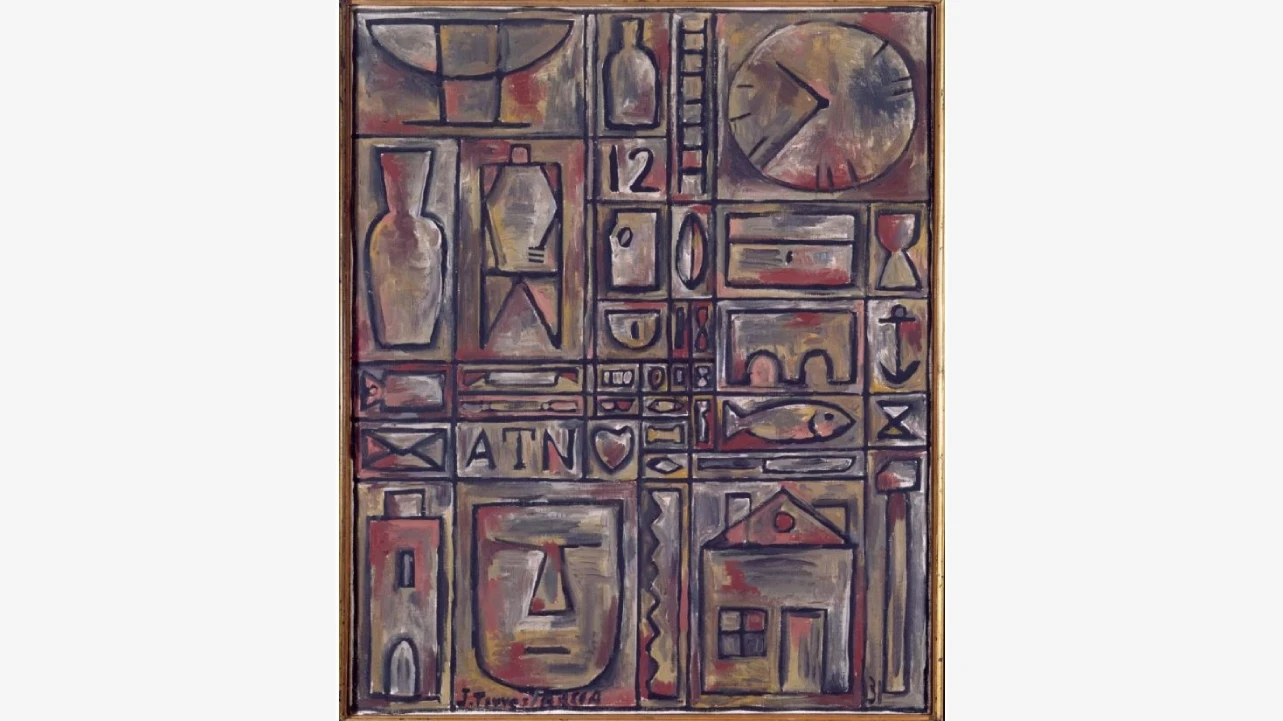
Más actividades
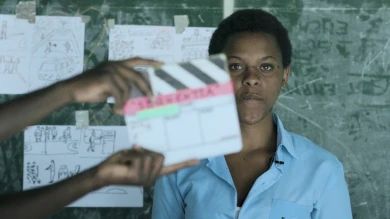
Christian Nyampeta and the École du soir
13, 14, 15 NOV, 11, 12, 13 DIC 2025
Christian Nyampeta is a Rwandan artist, musician and film-maker whose work encompasses pedagogies and community forms of knowledge production and transmission. His Ècole du soir (Evening School) is an art project conceived as a mobile space of collective learning and is named in homage to Ousmane Sembène (1923–2007), a pioneer of African cinema who defined his films as “evening classes” for the people, a medium of education and emancipation through culture.
This block is made up of three double sessions: the video work of Christian Nyampeta, the films of École du soir and one of Ousmane Sèmbene’s feature-length films. Nyampeta will introduce all three first sessions.
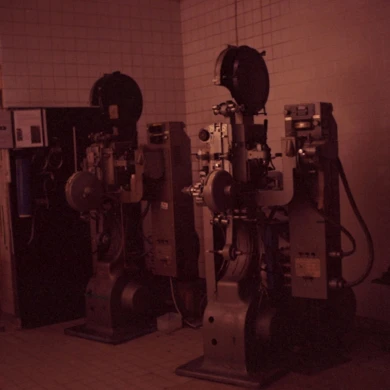
Long Live L’Abo! Celluloid and Activism
4, 5, 6 DIC 2025
L’Abominable is a collective film laboratory founded in La Courneuve (Paris, France) in 1996. It came into being in response to the disappearing infrastructures in artisan film-making and to provide artists and film-makers with a self-managed space from which to produce, develop and screen films in analogue formats such as Super 8, 16mm and 35mm. Anchored in this premise, the community promotes aesthetic and political experimentation in analogue film opposite digital hegemony. Over the years, L’Abominable, better known as L’Abo, has accompanied different generations of film-makers, upholding an international movement of independent film practices.
This third segment is structured in three sessions: a lecture on L’Abo given by Pilar Monsell and Camilo Restrepo; a session of short films in 16mm produced in L’Abo; and the feature-length film Une isle, une nuit, made by the Les Pirates des Lentillères collective.
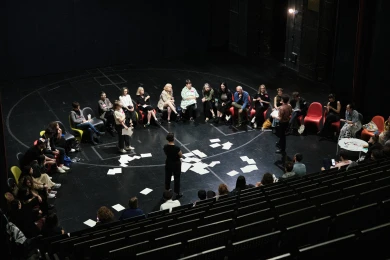
UP/ROOTING
11, 12, 13, 14, 15, 16 NOV 2025
Museo Reina Sofía and MACBA Museu d'Art Contemporani de Barcelona (MACBA) invite applications for the 2025 iteration of the School of Common Knowledge, which will take place from November 11th to 16th in Madrid and Barcelona.
The School of Common Knowledge (SCK) draws on the network, knowledge and experience of L’Internationale, a confederation of museums, art organizations and universities that strives to reimagine and practice internationalism, solidarity and communality within the cultural field. This year, the SCK program focuses on the contested and dynamic notions of rooting and uprooting in the framework of present —colonial, migrant, situated, and ecological— complexities.
Building on the legacy of the Glossary of Common Knowledge and the current European program Museum of the Commons, the SCK invites participants to reflect on the power of language to shape our understanding of art and society through a co-learning methodology. Its ambition is to be both nomadic and situated, looking at specific cultural and geopolitical situations while exploring their relations and interdependencies with the rest of the world.
In the current context fraught with war and genocide, the criminalization of migration and hyper-identitarianism, concepts such as un/belonging become unstable and in need of collective rethinking:
How can we reframe the sense and practice of belonging away from reductive nationalist paradigms or the violence of displacement? How to critically hold the entanglement of the colonial routes and the cultural roots we are part of? What do we do with the toxic legacies we inherit? And with the emancipatory genealogies and practices that we choose to align with? Can a renewed practice of belonging and coalition-making through affinity be part of a process of dis/identification? What geographies —cultural, artistic, political— do these practices of de/centering, up/rooting, un/belonging and dis/alignment designate?
Departing from these questions, the program consists of a series of visits to situated initiatives (including Museo Situado, Paisanaje and MACBA's Kitchen, to name a few), engagements with the exhibitions and projects on view (Project a Black Planet: The Art and Culture from Panafrica), a keynote lecture by Stefano Harney and Fred Moten, as well as daily reading and discussion gatherings, editorial harvest sessions, and conviviality moments.
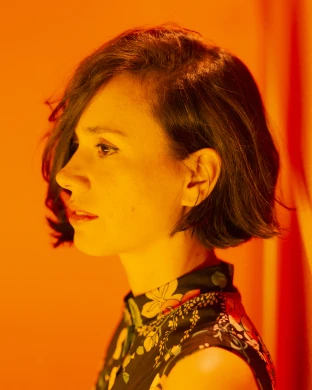
Ylia and Marta Pang
Thursday, 6 November - 8pm
The encounter between Spanish DJ and producer Ylia and visual artist Marta Pang is presented in the form of a premiere in the Museo Reina Sofía. Both artists converge from divergent trajectories to give form to a new project conceived specifically for this series, which aims to create new stage projects by setting out from the friction between artists and dialogue between disciplines.
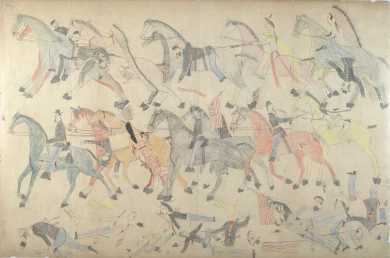
On the Art of Occupying Spaces and Curating Film Programmes
23, 24, 25, 30, 31 OCT 2025
On the Art of Occupying Spaces and Curating Film Programmes is a film programme overseen by Miriam Martín and Ana Useros, and the first within the project The Cinema and Sound Commons. The activity includes a lecture and two films screened twice in two different sessions: John Ford’s Fort Apache (1948) and John Gianvito’s The Mad Songs of Fernanda Hussein (2001).
“By virtue of a group of film curator enthusiasts, small plazas and vacant lots in Madrid’s Lavapiés neighbourhood became cinemas with the arrival of summer. The city streets made room for everyone: the local residents who came down with their seats tucked under their arms, or those who simply came across the Lavapiés Film Festival with no prior knowledge of it, but knowing how to recognise a free and convivial film screening, as enticing as light is to moths. The Festival’s film curators had to first reach a consensus with one another, by assembly, and then with others, addressing issues ranging from electricity to the transfer of rights to show the films.
Whereas the annually organised Festival resembled a camp, the weekly CSOA (Squatted Self-managed Social Centre) La Morada film society looked more like a settlement. In each squatted social centre, a micro civilisation is founded, and nestled among its infrastructures is always a film society. Why? We’ll see. A direct outcome of the 15M anti-austerity movement, this film society was contentless in form (the content, the films, were decided upon from session to session). Anyone was free to enter, and therefore free to curate the line-up, although not haphazardly — there was a method, ultimately devised so the community would not close, so it would never have one set image of itself.
Part of this method entailed relating the film from the following week to the recently viewed one, and the same method has gone into putting together this two-session programme. The Festival and the film society were, moreover, attempts at rectification: the festival logic and the very same film-club logic, according to which film boils down to an excuse for debating serious issues. There would be nothing to debate but much to ponder. For instance, about the manufacturing of enemies by a nation that chooses enemies in the world, with one film from the year the State of Israel was proclaimed and another from the year the Twin Towers were razed to the ground. The USA manufactures functional enemies and heroes and American cinema, in addition to showing us this, manufactures unforgettable characters: the Apache chief, Cochise, and mother courage, Fernanda Hussein. We’ll see”.
Miriam Martín and Ana Useros
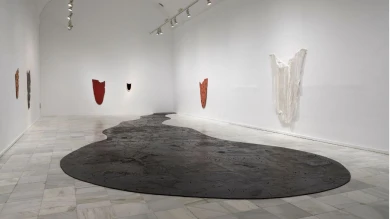
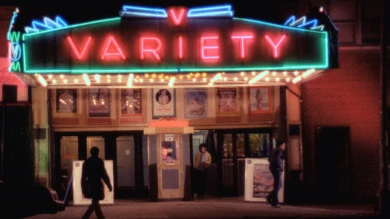
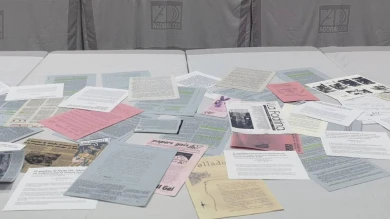
![Miguel Brieva, ilustración de la novela infantil Manuela y los Cakirukos (Reservoir Books, 2022) [izquierda] y Cibeles no conduzcas, 2023 [derecha]. Cortesía del artista](https://recursos.museoreinasofia.es/styles/small_landscape/public/Actividades/ecologias_del_deseo_utopico.jpg.webp)
![Ángel Alonso, Charbon [Carbón], 1964. Museo Reina Sofía](https://recursos.museoreinasofia.es/styles/small_landscape/public/Actividades/perspectivas_ecoambientales.jpg.webp)